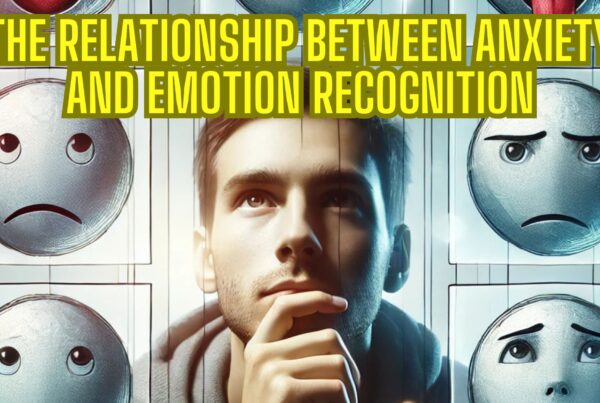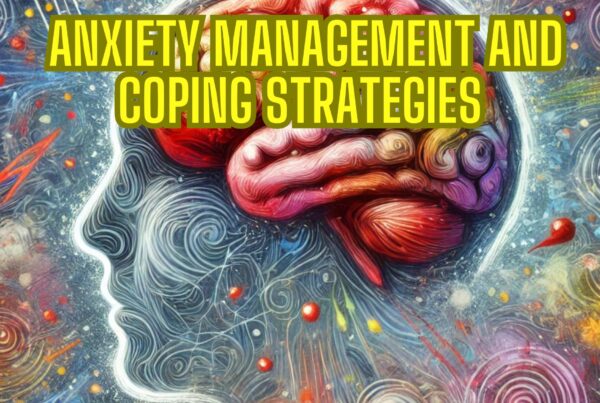Navigating Through the Mental Maze: Managing Intrusive Thoughts and Dispelling the Myths
The Unseen Battle: Understanding Intrusive Thoughts
Most days, our minds have the ability to create thoughts that seem out of place, startling, or even disturbing. These unwelcome guests, known as intrusive thoughts, often weave a web of incessant worry and anxiety, especially when they frequent our mental landscape. The journey of managing intrusive thoughts becomes a pivotal exploration, especially when these mental interjections are not just sporadic, but a persistent and distressing battle for many.
While some may experience these thoughts as brief and disconcerting moments, others find themselves embroiled in a continuous struggle, notably when these thoughts become entwined with mental health conditions, such as Obsessive-Compulsive Disorder (OCD). The path towards understanding and effectively managing intrusive thoughts is not only about confronting them but also about unraveling the myths and misconceptions that often surround them, providing a clearer mental landscape for those seeking tranquility amidst the chaos.
Navigating through the intricate pathways of our mind, we find that intrusive thoughts are not merely limited to worries about everyday life. They can span various themes, from violence and harm to concerns about one’s sexual orientation, each carrying its own weight of distress and apprehension. The journey to managing these thoughts begins with understanding them, and more importantly, debunking the myths that often surround them.
Myth-Busting: Separating Fact from Fiction in Intrusive Thoughts
Embarking on a journey to manage intrusive thoughts often involves dismantling the myths that have, over time, become deeply rooted in our understanding of them. One such myth revolves around the belief that to keep oneself and others safe, one must engage in rituals or behaviors to neutralize or counteract these thoughts. The reality, however, paints a different picture. Engaging in rituals, particularly in the context of OCD, might provide temporary relief but inadvertently reinforces the anxiety associated with these thoughts in the long run.
Moreover, it is not uncommon for individuals to believe that their intrusive thoughts are a reflection of their character or inherent desires. This myth can be particularly debilitating, casting a shadow of guilt and self-doubt over the individual. The truth remains that these thoughts are not a reflection of one’s character or desires but are, in fact, unwanted and cause distress, which is quite the opposite of one’s actual desires and values.
The Dichotomy of Thought and Action: A Crucial Distinction
In the intricate web of intrusive thoughts, another myth that often surfaces is equating the thought of an action with the action itself, a phenomenon known as thought-action fusion. The belief that thinking something unpleasant or harmful is morally equivalent to carrying out such an act can amplify the distress experienced by the individual. It is pivotal to recognize that thoughts, no matter how unsettling, are not actions and do not carry the moral weight of actions.
Understanding and accepting that having a disturbing thought does not translate to acting upon it is a crucial step towards managing intrusive thoughts. It allows for the creation of a space where thoughts can exist without being acted upon, providing the individual with the opportunity to respond rather than react to their thoughts.
The Illusion of Control: Surrendering to the Ebb and Flow of Thoughts
The desire to control, suppress, or alter our thoughts is a natural inclination, especially when they are of an intrusive and unsettling nature. However, the belief that one can and should exercise control over their thoughts is a myth that needs gentle dismantling. The attempt to control or suppress thoughts often leads to a paradoxical increase in those very thoughts, entangling the individual in a perpetual cycle of mental struggle.
Embracing a stance of surrender towards our thoughts, allowing them to flow without judgment or resistance, can pave the way towards recovery and management. This does not imply agreement or acceptance of the content of the thoughts but merely acknowledges their existence without providing them with the power to dictate actions or emotional states.
Building Tolerance: Embracing Thoughts and Associated Anxiety
The belief that one cannot tolerate the presence of intrusive thoughts and the anxiety they bring along is a myth that often hinders the path towards effective management. While the emotional and physical sensations brought about by anxiety can be challenging, they are indeed tolerable and will, given time, subside on their own.
Building tolerance towards intrusive thoughts and the accompanying anxiety involves practicing sitting with them, without engaging in behaviors to neutralize or counteract them. This practice, over time, not only reduces the power that the thoughts hold but also enhances the individual’s capacity to manage them effectively, steering through the mental maze with resilience and understanding.
Release Hypnosis Melbourne Hypnotherapy
Since 2016, Lawrence Akers has been working under the name Release Hypnosis offering Hypnotherapy and ACT based work to the people of Melbourne or an online service. Based on St Kilda Rd, Release Hypnosis is an easy and convenient location to get to and accessible by the ANZAC station train and tram stop. Release Hypnosis can help with a wide range of presenting issues, and I offer a free 30 minute no obligation discovery call for those who are unsure if hypnotherapy is the right way forward for them.
Book Your FREE 30 Minute Consultation With Release Hypnosis NOW!
You may also like to read:
Discovering Purpose and Values: A Path to Mental Well-being
Can’t Visualise in Hypnosis? Here’s What You Can Do Instead.
Dealing with Financial Stress and Crisis: Finding Peace Amid Turbulence
What Is The Success Rate of Hypnosis?
Release Hypnosis Melbourne Hypnotherapy is accessible for people in: Abbotsford, Armadale, Albert Park, Balwyn, Bentleigh, Black Rock, Box Hill, Brighton, Brunswick, Bulleen, Bundoora, Camberwell, Canterbury, Carnegie, Caulfield, Chadstone, Cheltenham, Clayton, Coburg, Collingwood, Deer Park, Doncaster, Elsternwick, Eltham, Elwood, Epping, Essendon, Fairfield, Fitzroy, Footscray, Glen Iris, Glen Waverley, Glenhuntly, Greensborough, Hampton, Hawthorn, Heidelberg, Highet, Ivanhoe, Kew, Kooyong, Lalor, Laverton, Lower, Plenty, Macleod, Malvern, Middle Park, Moonee Ponds, Melbourne, Moorabbin, Mount Waverley, Murrumbeena, Northcote, Oakleigh, Ormond, Parkville, Pascoe Vale, Port Melbourne, Prahran, Preston, Richmond, Rosana, Sandringham, South Yarra, South Melbourne, Spotswood, St Albans, St Kilda, Surrey Hills, Templestowe, Thornbury, Toorak, Tullamarine, Williamstown, Yarraville, North Melbourne, Windsor, East Melbourne, Melbourne, Melbourne CBD, Melbourne 3004








